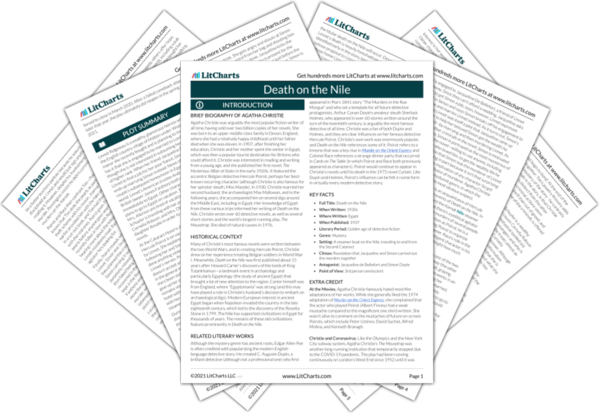AI ToolsNew
Tools to make learning and teaching easier
|
Previous
Chapter Three
|
Death on the Nile: Chapter Four Summary & Analysis |
Next
Chapter Five
|


Upgrade to unlock the analysis and theme tracking for all of Death on the NileDeath on the Nile!
Get LitCharts A+